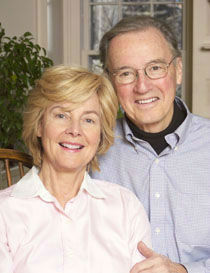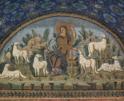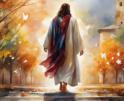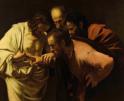
Faith
The fashionable ism of 'postmodernism' has deeply wounded the family. The word has many meanings, but its 'impact' meaning is 'Post-Christian,' as in, 'religious truths are dead and been slain by the only reliable truth: science.'

Ryan
If you think about it, there has been a dictionary-load of some kind of -ism words. There have been so many in the 20th century that this could be labeled the age of belief.
Isms are endings of words explaining a school of thought or belief. Here is a partial list. Marxism, Communism, fascism, Islamism, scientism, capitalism, Catholicism, nihilism, patriotism, nationalism, populism, liberalism, conservativism, Zionism, feminism, secularism, racism, sexism. And there are new isms every day. From boardrooms to school classrooms, new isms are launched before power lunches or recess.
How could we have overlooked environmentalism? Look closely and you will capture the power of beliefs in our daily lives.
Humans, as far as we know, have belief embedded in our DNA. From earliest known human sites, in caves, mountains and savannahs, people have held powerful organizing faith. It may have been fire and fearsome storms, the need for a regular rainy season for crops to grow, the incomprehensible mysterious universe that led us to find power beyond ourselves.
We admit to having been under the sway of several ideologies in our formative years. We were persuaded by powerful thinkers or just our circle of chums. Listening to teachers and professors made converts of so many. Over the years, ideas sift through the air; some evaporate; others take a back seat; still others reshape our daily lives and practices.
"Practice, inevitably shapes belief," Philadelphia's Archbishop Charles J. Chaput wrote during the Synod of the Family last October. Bishops from around the world gathered at the synod to discuss "the vocation and mission of the family in the contemporary world." Of course, few issues could be more substantive than the strength of the family. Healthy families mean a healthy culture; broken families, a broken culture.
All democratic societies rely heavily on healthy families. But as Americans are all too painfully aware, family life is under assault. As economic and technological change disrupt families everywhere, social practices have responded by undergoing radical change. Few families are not threatened by changes in sexual practices and household living patterns. In the so-called developed world, divorce, casual sex and cohabitation are now common.
The fashionable ism of "postmodernism" has deeply wounded the family. The word has many meanings, but its "impact" meaning is "Post-Christian," as in, "religious truths are dead and been slain by the only reliable truth: science."
Like many of our current rash of isms, postmodernism has European roots. One modern champion is Najat Vallaud-Belkacem, a French government spokeswoman, who was a vocal advocate during the debates on same-sex marriage. One recent result is that the French government is now warning Catholic schools with state contracts that merely sponsoring debates on gay issues would be received as an attack on "freedom of conscience." Therefore, no debate, no discussion.
Her radical work is what comes of postmodernism. Now as minister of education, Ms. Vallaud-Belkacem is pushing for introduction of "gender theory" into state schools. Can American schools be far behind?
Perhaps, we should revisit an older Frenchman from our old school days, Alexis de Tocqueville. Nearly 180 years ago, he traveled widely throughout our country and wrote with great admiration and insight about Americans. Steering clear of the extremes of sovereignty and the revolution he had witnessed in French governance, he found in our country not only the most religious people but the most free. At the same time that American law permits people great freedom and liberty, he observed that religion prevents them from conceiving everything and forbids them to dare everything.
The constraints of religion are keys to true freedom and true liberty. It is even more critical today that in the face of hostile and alien -isms that we teach our children well about Catholic-ism and its emphasis on family life. If we fail, they will surely believe something quite radical.
KEVIN AND MARILYN RYAN, EDITORS OF "WHY I'M STILL A CATHOLIC," WORSHIP AT ST. LAWRENCE CHURCH IN BROOKLINE.
- Kevin and Marilyn Ryan, editors of "Why I'm Still a Catholic," worship at St. Lawrence Church in Brookline, Mass.
Recent articles in the Faith & Family section
-
Scripture Reflection for April 21, 2024, Fourth Sunday of EasterJem Sullivan
-
The new Temple: How Easter changes religionDr. R. Jared Staudt
-
The wonder of Ordinary TimeLucia A. Silecchia
-
Is there still responsibility for past sins after confession?Jenna Marie Cooper
-
Wounds, not scarsJaymie Stuart Wolfe


















